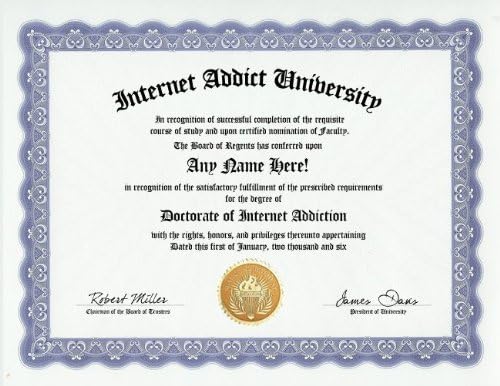tas8831
Well-Known Member
Oh, humans sprang from dust which sprang from a deity 'speaking' or willing it to be or whatever the going story is - from nothing!Oh, it sprang from energy which sprang from nothing!
Welcome to Religious Forums, a friendly forum to discuss all religions in a friendly surrounding.
Your voice is missing! You will need to register to get access to the following site features:We hope to see you as a part of our community soon!
Oh, humans sprang from dust which sprang from a deity 'speaking' or willing it to be or whatever the going story is - from nothing!Oh, it sprang from energy which sprang from nothing!
Have you replicated the creation of bio-organic molecules from silicates (dust of the ground) yet?Then you should be able to replicate it easily.
Whats this? A creationist making strawman assertions??? I'm aghast!... but it still happened by total chance
Please explain how this is the case.and even a beneficial mutation is often a loss of information, not a gain.
Right.So, even calling it beneficial isn't really correct.
Wow, so you actually think the 'bang' was an 'explosion'... What is your science background again?

That all happens with no new information added to their DNA.

Evolutionary biologists often assume that once mutations produce a functionally advantageous trait, it will easily spread (become “fixed”) throughout a population by natural selection.
But In the real world,merely generating a functionally advantageous trait does not guarantee it will persist, or become fixed.
For example, what if by chance the animal to first develop the beneficial mutation breaks a leg, and gets eaten by a predator — never passing on its genes?
Random forces or events can prevent a trait from spreading through a population, even if it provides an advantage.
Yes, thank you!It's actually quite less then 29%, because a large part of that 29% of "not water surface" is permafrost at the poles, inhospitable mountains, deserts like the Saharah, etc. Quite hostile environments where it would be tremendously hard, and sometimes simply impossible, for settlements to survive - let alone thrive.
Except that it's not perfect. Far from it.Nope. It is perfect. But not ever inch is for living on. Just like you don't sleep on the toilet hopefully, but it still has a purpose.
Obviously, you didn't read my other posts.Wow, so you actually think the 'bang' was an 'explosion'... What is your science background again?
It's the whole basis for evolution even happening on a macro scale, although it still falls short as an explanation.Quote/cite a paper where an evolutionary biologist does that.
Repeating your claim in other words, does not answer the question, nor does it validate the claim.It's the whole basis for evolution even happening on a macro scale, although it still falls short as an explanation.
It should be easy to cite a paper that says as much then.It's the whole basis for evolution even happening on a macro scale, although it still falls short as an explanation.
If a mutation doesn't become fixed in a population, then no one evolved to another level. This is basic stuff.Repeating your claim in other words, does not answer the question, nor does it validate the claim.
Neither does the piling on of claims.
What do you mean by "another level?"If a mutation doesn't become fixed in a population, then no one evolved to another level. This is basic stuff.
Then quote/cite a paper where a scientist does it.It's the whole basis for evolution even happening on a macro scale, although it still falls short as an explanation.
Same old same old, no answer, just " You don't get it " A population cannot advance unless a change becomes fixed in the population. If it just dies out nothing changes.What do you mean by "another level?"
Are you sure you understand evolution, because it doesn't seem like you do, which makes me wonder why you're talking about it?
You are correct, I can only take so much!Obviously, you didn't read my other posts.
And what would that "genetic information" have to be?The stop is when an organism can not change past a certain point because it doesn't have the genetic information to do so.
Why is that?All of life’s complex features,, are said to be encoded in the DNA of living organisms. Building new features thus requires generating new information in the genetic code of DNA.
So says Behe...There are systems which require many parts — and therefore many mutations — to be present — all at once — before providing any survival advantage to the organism.
Natural selection is an outcome, not an act.Random mutation and unguided natural selection
That is quite an assertion - which creationist essay did you paraphrase that from?cannot generate the genetic information required to produce irreducibly complex structures.
Most don't do anything.In fact most mutations are shutting something off, not turning something on.
So you have thus refuted your earlier claim!So even if a mutation is beneficial, it can be a loss I'm genetic information, not a gain.
Yeah, I saw that exact quote on lots and lots of creationist websites - which one did you get it from, just out of curiosity? In fact, EVERY return on the first Google page when I searched for it were to creationist websites or books. Weird how that works.Evolutionary biologist Jerry Coyne — a staunch defender of Darwinism, says that “natural selection cannot build any feature in which intermediate steps do not confer a net benefit on the organism."
LOL!Darwin apparently also recognized this problem, as he wrote in Origin of Species:
"If it could be demonstrated that any complex organ existed, which could not possibly have been formed by numerous, successive, slight modifications, my theory would absolutely break down."
Little did he know just how complex DNA would be.
If a mutation doesn't become fixed in a population, then no one evolved to another level. This is basic stuff.
